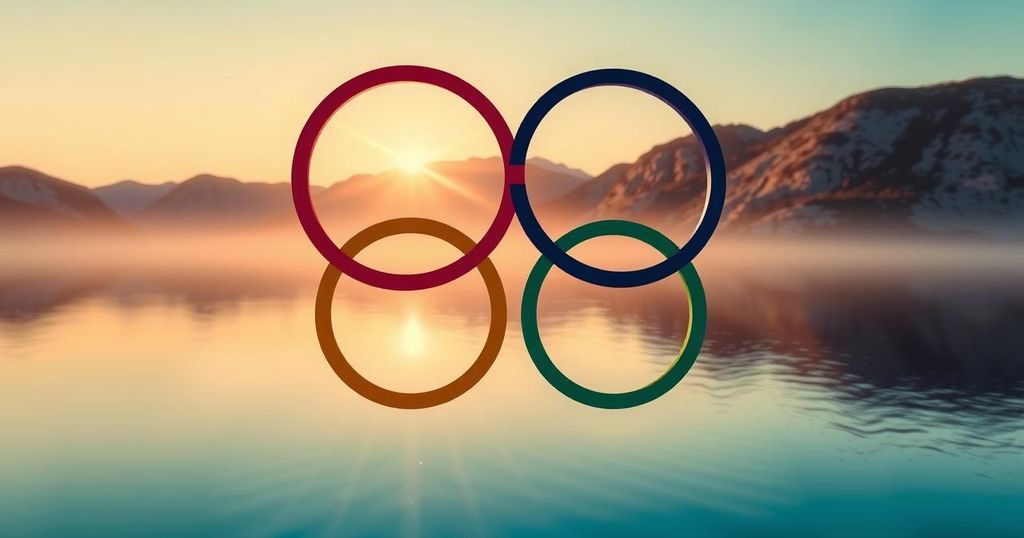Prominent Japanese Sponsors Withdraw from IOC Contracts Amidst Olympic Controversies
Toyota, Bridgestone, and Panasonic, three major Japanese sponsors of the International Olympic Committee (IOC), have terminated their sponsorship contracts ahead of the Paris Olympics. This decision highlights challenges faced around the Tokyo Olympics, including increased costs and corruption scandals, leading to a shift in IOC sponsorship focus towards the Middle East and India. Toyota’s Chairman raised concerns about the IOC’s alignment with the company’s values, while Bridgestone and Panasonic cited reassessments of their corporate strategies.
In a significant development, three of Japan’s leading sponsors for the International Olympic Committee (IOC)—Toyota, Bridgestone, and Panasonic—have decided to terminate their Olympic sponsorship contracts. This decision marks a notable shift in the landscape of Olympic sponsorship, especially with the IOC now looking towards the Middle East and India for potential new sponsors amidst a background of recent challenges associated with the Tokyo Games. This withdrawal from sponsorship appears to be influenced by multiple factors, including the postponement of the 2020 Tokyo Olympics, which resulted in decreased visibility for sponsors, compounded costs, and a backdrop of corruption controversies surrounding the event. The three companies are part of the nine that represent the IOC under the sponsorship scheme known as The Olympic Partners (TOP). Toyota, which held the most lucrative contract valued at approximately $835 million, confirmed that it would not extend its agreement beyond the upcoming Paris Olympics slated for this August. Chairman Akio Toyoda expressed concerns regarding the IOC’s alignment with his company’s principles, stating, “Honestly, I’m not sure they (IOC) are truly focused on putting people first. For me, the Olympics should simply be about watching athletes from all walks of life with all types of challenges achieve their impossible.” Despite stepping back from the sponsorship, Toyota has pledged to continue supporting individual Olympic and Paralympic competitors. Similarly, Bridgestone announced that it would not renew its sponsorship due to a reevaluation of its global brand strategy and its decision to focus more on motorsports initiatives. Panasonic, a longstanding sponsor since 1987, did not provide specific reasons but indicated a desire to reassess how its sponsorship could evolve. The Tokyo Olympics faced scrutiny not only for the exorbitant costs, officially estimated at $13 billion—with public funds covering about half—but also due to scandals tied to local sponsorship agreements and the process of selecting Tokyo as the host city for the 2020 Games, which is currently under investigation by French authorities. During the last Olympic cycle, the IOC generated $7.6 billion in revenue, with TOP sponsors contributing over $2 billion to that figure, a total expected to increase in the subsequent cycle. As Japan’s three premier sponsors withdraw support, the IOC now confronts a reduction in immediate financial partnerships, prompting a strategic pivot to explore sponsorship opportunities in other regions.
This article discusses the decision of three major Japanese sponsors—Toyota, Bridgestone, and Panasonic—to end their sponsorship deals with the International Olympic Committee (IOC). The implications of this withdrawal are significant, as it highlights a broader trend of disillusionment among sponsors in light of the difficulties encountered during the Tokyo Games, including the effects of the COVID-19 pandemic, cost overruns, and corruption allegations. Understanding the context of these challenges is crucial to grasping the complexities and ramifications of the sponsorship landscape for future Olympic events.
The withdrawal of Toyota, Bridgestone, and Panasonic from their Olympic sponsorship contracts underscores the challenges faced by the IOC in maintaining sponsorship relationships following the Tokyo Olympics. As the committee looks for new partnerships in different regions, notably the Middle East and India, it must navigate the issues that have recently plagued its relationships with traditional sponsors. The ramifications of this situation may influence the IOC’s operational and financial strategies moving forward, particularly in preparing for the upcoming Olympic cycles.
Original Source: apnews.com








Post Comment